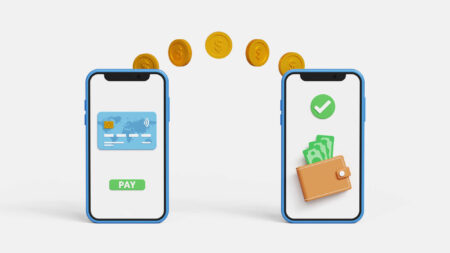Peer-to-peer (P2P) networks are distributed computer systems in which each participant, or "peer", can act as both a client and a server. In P2P networks, participants can share resources directly with each other without the need for a centralised server. This allows tasks, data or content to be distributed across the network, promoting collaboration and efficient use of resources.
The decentralised structure improves the scalability, robustness and resilience of the network, as there is no single point of failure. Examples of current uses of P2P solutions include the Tor browser, BitTorrent, or blockchain payment systems such as bitcoin. Characteristic of a decentralised system is that all participants in the system are equal and subject to the same rules. The entire P2P architecture is in stark contrast to the client-server model, which relies on a central entity (server) to distribute data unidirectionally to network participants (clients).
Peer-to-Peer (P2P) blockchain interactions
In the context of blockchain technology, P2P relates to the decentralised and direct exchange of digital assets without the need for intermediaries like financial institutions. Blockchains facilitate this direct interaction by creating a network of nodes, each managing a copy of the shared ledger. These nodes act as peers, validating and recording transactions, ensuring transparency, security and immutability. By removing intermediaries and central authorities, P2P blockchain transactions offer greater efficiency and cost-effectiveness. They enable seamless cross-border transfers and disrupt traditional financial systems.
The peer-to-peer nature of blockchain extends beyond financial transactions. They enable decentralised applications (dApps) and smart contracts with diverse applications. These can for example be in supply chain management, voting systems or intellectual property rights. As the technology matures, regulatory challenges and scalability concerns are will be addressed. This paves the way for a more inclusive and transparent global economy driven by P2P interactions. The benefit of decentralisation makes the entire system more secure, as the failure of one participant will not have a significant impact on the system as a whole.









